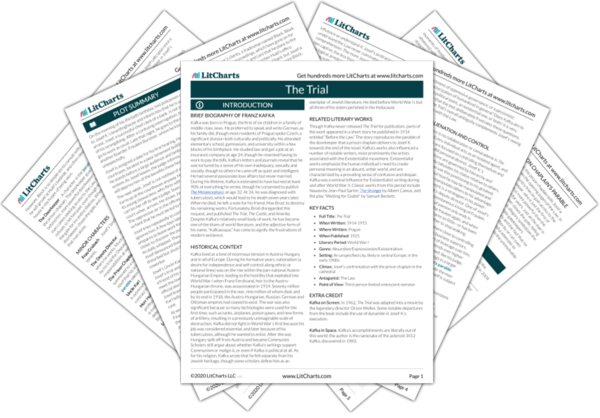Kafka was born in Prague, the first of six children in a family of middle-class Jews. He preferred to speak and write German, as his family did, though most residents of Prague spoke Czech, a significant division both culturally and politically. He attended elementary school, gymnasium, and university within a few blocks of his birthplace. He studied law and got a job at an insurance company at age 24, though he resented having to work to pay the bills. Kafka's letters and journals reveal that he was tortured by a sense of his own inadequacy, sexually and socially, though to others he came off as quiet and intelligent. He had several passionate love affairs but never married. During his lifetime, Kafka is estimated to have burned at least 90% of everything he wrote, though he consented to publish
The Metamorphosis at age 32. At 34, he was diagnosed with tuberculosis, which would lead to his death seven years later. When he died, he left a note for his friend, Max Brod, to destroy his remaining works. Fortunately, Brod disregarded this request, and published
The Trial,
The Castle, and
Amerika. Despite Kafka's relatively small body of work, he has become one of the titans of world literature, and the adjective form of his name, "Kafkaesque," has come to signify the frustrations of modern existence.
